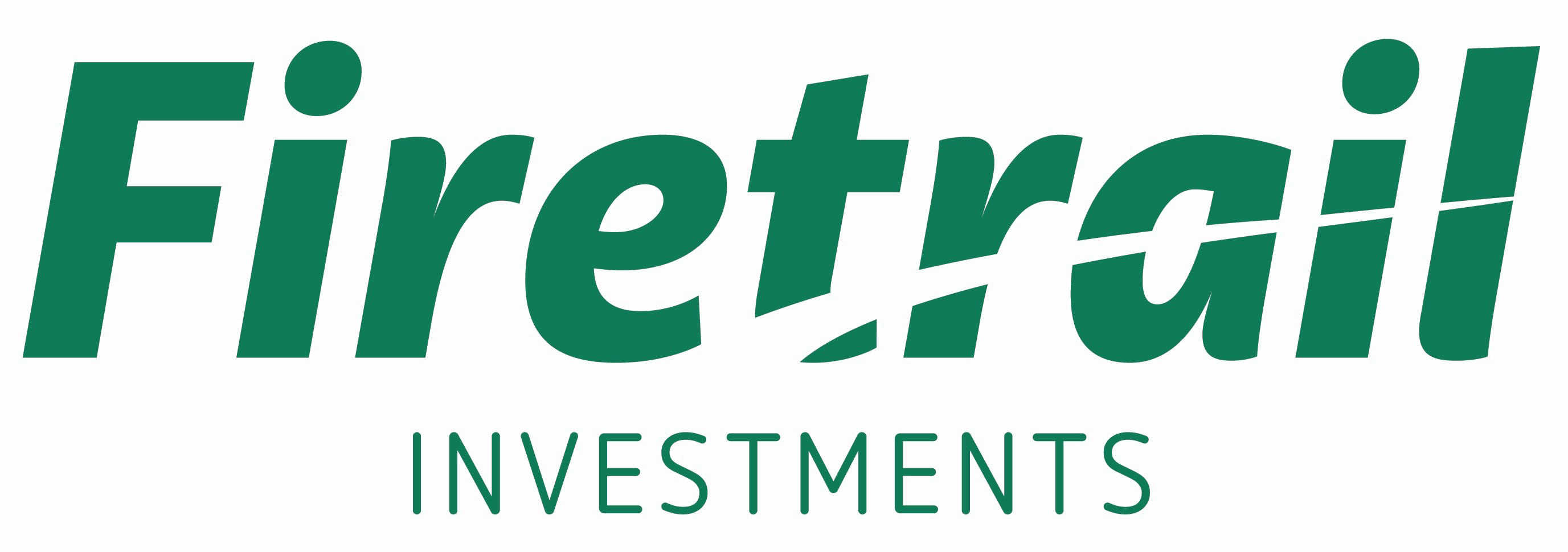Turbulence ahead: 4 experts share their best ideas as economic uncertainty escalates
The intersection of US politics and central bank moves is increasingly nothing short of a high-stakes drama, leaving markets (and investors) on the edge of their seats, eager to see what happens next.
Who needs Netflix when real life is just as riveting? In the last few weeks alone, Donald Trump dodged an assassination attempt while current US President Joe Biden dropped out of the race, leaving Vice President Kamala Harris to lead the Democratic charge. Meanwhile, Trump's VP nominee J.D. Vance has recently gone viral over claims he has an unsavoury fondness for furniture... It's truly the wild west out there.
Amid these seismic shifts, the Federal Reserve is also contemplating its next move - including a scenario that could see inflationary pressures tread higher if Trump were to be re-elected for a second term.
For investors, the next few months are likely to be anything but ordinary - which is where this wire comes in.
Livewire recently hosted a panel session at Pinnacle Investment's Alpha Uncovered Summit 2024. Featuring some of the brightest minds in investment management, across a range of asset classes, the likes of Coolabah Capital's Christopher Joye, Resolution Capital's Andrew Parsons, Antipodes Partners' Jacob Mitchell and Firetrail Investments' Anthony Doyle joined forces to dissect some of the market's biggest talking points right now.
This includes their thoughts on US and local politics (and how this impacts investors' portfolios), why valuations look stretched, as well as their best ideas for the next 12 months.
Note: This panel was recorded at Pinnacle's Alpha Uncovered 2024 Summit in Sydney on Wednesday 24 July 2024.

How US politics and central bank moves are shaping markets
The US election is arguably the biggest story in the world right now, with each week marked by a new dramatic storm.
"The Fed's been petrified about a Trump presidency because Trump has said he'd remove J. Powell and he'd take powers away from the Fed," Joye explained.
"And now they're stuck in this position where it looks like Trump will prevail at the November election. He's going to be unambiguously more inflationary by slashing migration, cutting taxes, and generally boosting consumer prices."
While the Fed is expected to cut rates in September, Joye believes it would be wiser to wait until after the election.
"Potentially, we're going to get a radical regime shift in the economic policy apparatus at that point in time. But I think they're going to continue with that current approach of railroading to a cut," he said.
So how would a Trump win in November impact investor portfolios? According to Joye, it could spell rates staying higher for longer and more volatility in markets. Clearly, this is not great for any asset class.
Mitchell agrees that Trump is likely to win in November, and believes that investors can bet on more corporate tax cuts (which would be good for mid-cap American companies), as well as increased mergers and acquisitions (M&A).
"As we've seen in the last couple of weeks, there's been some mean reversion where the Russell, which is the mid-cap index, has done quite well versus the NASDAQ. I suspect that pattern would continue," he said.
"Number two, you are going to get a much more liberal regulatory environment and you'll have a lot more M&A take place. There's a lot of pressure in middle America because of high leverage ratios and the fact that the mega caps are taking so much of the available profit pool - that's putting pressure on all these middle American companies."
He also points to the ongoing decoupling of China and the US as a continued geopolitical risk.
"Both countries are trying to play to their strengths. For China, that means more engagement with the rest of the world, especially the emerging world, which is growing faster than the developed world. And also on-shoring the bits of its supply chain that are dependent on the West, like semiconductor production equipment," Mitchell explained.
"The US is doing the opposite, trying to bring back sensitive parts of its supply chain from Taiwan."
Is Australia's political environment really any better?
While Australians watching the US political firestorm of the last few weeks from afar may have a feeling eerily similar to watching a car crash, or a house on fire, a little self-reflection may come in handy.
Australia's political system isn't without its problems itself - as a Senate inquiry into the NDIS recently revealed, for example. And, when it comes to real estate, it isn't much better.
"Clearly, there is a mismatch between planning infrastructure between state, local and federal governments. And this is not something that is unique to Australia - we shouldn't forget, housing issues are prevalent in many of the major cities around the world," Parsons said.
"I keep saying to people, that we can make Sydney, Melbourne, and Brisbane affordable if you destroy the cities. Nobody will want to live there. Prices will come down.
"Affordability is the way that cities regulate population growth. If Sydney was cheap and it was great, you can imagine, so many more people would be trying to live here."
Affordable social housing remains a massive challenge - as does the country's need for updated infrastructure and amenities. And it all comes at a time when construction costs and labour shortages remain sky-high.
Valuations and yields are "BS"
This is not a "Goldilocks era" for investors, but a fairy tale, Joye argued. But like everything, it all comes down to where you are invested.
"If you're in high-grade floating rate notes right now, that can pay 6% interest rates. So you can get 6% on CBA bonds that, back in 2021, were probably paying you about 2%. I mean, that's an incredible outcome," Joye said.
Credit spreads, however, are mixed. B-rated high-yield spreads in the US are currently sitting at 280 basis points over US Treasuries. Normally, Joye notes they pay you 550 basis points over US Treasuries.
"High-yield looks heinously expensive, but nothing's trading. No one's buying high-yield. It's the same as A-grade office property trading on cap rates of 4.5%, no one's trading or buying office property right now. The cap rates are BS. The high-yield spreads are BS," Joye said.
"PIMCO, which runs private debt, came out and said that 40% of all global private credit borrowers can't repay their loans at current interest rates and that the extra return you get from private credit is less than half what they would want as a minimum. And that's from PIMCO! So those areas look unattractive."
While hybrids are also looking expensive, financials look attractive, with Tier 2 spreads (rating adjusted) currently screening as cheap. Equity valuations, on the other hand, are "crazy".
"The equity risk premium looks crazy right now. You can rationalise it in many different ways, but you can get equity-like returns from very liquid, very low-risk fixed income at present," Joye added.
Parsons added that Joye's points paint an increasingly worrying situation for unlisted funds, with superannuation funds, exposed to unlisted real estate assets, trying to deflate valuations.
This is playing out as an Armageddon in unlisted commercial property, Joye added, where "all the funds are frozen."
"Imagine that then propagating into other areas, into other funds, like private debt, which are also illiquid. And when people have promised monthly liquidity, people want to pull their money out, but you can't get access to that cash," he said.
"A little anecdote, my mum was advised by, I won't name the group, to invest in the Tribeca Credit Fund. And these dopes were lending to a marijuana business. The whole portfolio blew up, and my mum is sitting there with a $250,000 exposure.
"I had no idea about this. I didn't endorse it, didn't vet it. I should have. But the advisers on her portfolio report showed her that she's got a $250,000 exposure to a fund that she tried to redeem years ago, and they are saying she'll never get anything back. It's ridiculous."
Big ideas for the next 12 months
.jpg)
While Mitchell notes that the Fund is mainly tilted outside of the US, his highest conviction idea is the largest credit card company in the country, Capital One Financial (NYSE: COF).
"This stock has derated because of the expectation that loss rates would go up, and they have. But the company is well provided for and its borrowers have suffered from higher rates," he explained.
"Credit card rates reprice immediately. When the Fed lifts rates, that immediately hits the borrower. So it's a part of the US economy and that part of the economy will benefit from lower rates."
The company also recently announced the acquisition of Discover (NYSE: DFS), a closed-loop network like American Express, which trades on a premium multiple.
“The business quality and ability to leverage data improves significantly as it can combine Capital One’s digital, underwriting and marketing expertise with the proprietary or closed loop network of Discover, making it one of the four major card networks in the US," Mitchell said.
"So there are multiple ways of winning. The current multiple is around seven times. We think, under a Trump administration, the likelihood of that acquisition being blocked falls.
"We don't need that to play out - you can justify the investment without the M&A going ahead, with a double-digit dividend and buyback yield over the next several years but then the multiple drops to five times. So we're investing in parts of the US where we think there's a recessionary outcome already priced in, as opposed to paying 34 times for Apple (NASDAQ: AAPL).
.jpg)
Parsons believes the opportunity is attractive in data centres, like every man and his dog right now, but he argues the opportunity is far more exciting in healthcare and retail right now.
"Retail is out of fashion. But you've got no supply - in the US, for example, you've got multi-decade low vacancy rates because there is no supply," he said.
"Retailers have realised that delivery to the home, free of charge, doesn't make money. Surprise, surprise! They make their money through the bricks and mortar. So they're all reinvesting in stores. This is the quiet recovery of retail."
Seniors' housing is another exciting area of opportunity right now, he argued, as populations around the developed world get older.
"The need for senior housing accommodation, particularly given ageing populations and the US's health deterioration - the demand for this type of accommodation is growing. There is no new supply taking place. This is just a great cash flow growing story," Parsons said.
.jpg)
Uncertainty or volatility expands with the "square root of time", Joye said, and thus, his trading is forced on making short-term educated bets rather than long-term guesses.
"Our trading is very focused on the new issue markets, the primary markets, and that's the most exciting opportunity," he said.
"Unlike the equity market, equities can see the IPO markets shut down for six or 12 months, and there can be a lot of illiquidity in the equity market. But in the bond market, when companies have debts that are maturing, if CBA doesn't repay that debt, it's trading insolvent. So they have to issue."
There are hundreds of new bonds issued globally each week. In the last six months, the Coolabah team has bought and sold 200 new bond issues - so more than one a day.
"We make money 80% to 90% of the time. And we're pulling out small interest rate mispricings, typically about 15 basis points... with a typical capital gain of 0.4% to 0.6% every three days," Joye explained.
"That generates IRRs of around 36% per annum. Now, we can't be 100% invested in new issues. I wish we could. So we have to have some secondary trading, and that dilutes the returns down."
"As governments issue more and more debt, the new issue market gets bigger and bigger," he said.
"It's only mispriced by about one basis point because it's a sovereign bond, the market's more efficient. But that primary alpha engine is massive. It's relentless," Joye said.
.jpg)
Meanwhile, Doyle believes that the best opportunities are screening in global small and mid-caps today (compared to mega caps, where valuations are particularly rich).
"One company that we particularly like is the most important company that you've never heard of, and that's a company named BE Semiconductor (AMS: BESI), listed in the Netherlands," he said.
"It is a company that specialises in producing the machinery that allows hybrid bonding, which is stacking chips on top of one another. So essentially, it's allowing stronger compute and processing power in terms of the hardware for devices."
Doyle argued the company has better margins than TSMC (NYSE: TSM) and ASML (AMS: ASML) and "has a 90% market share of that market".
"We expect that stock to double," Doyle said.



4 topics
6 stocks mentioned
3 funds mentioned
3 contributors mentioned

